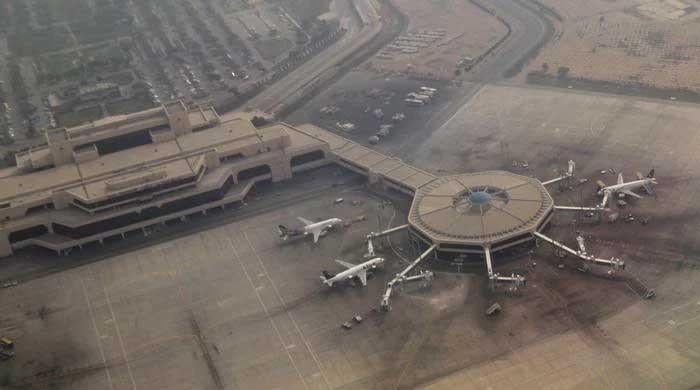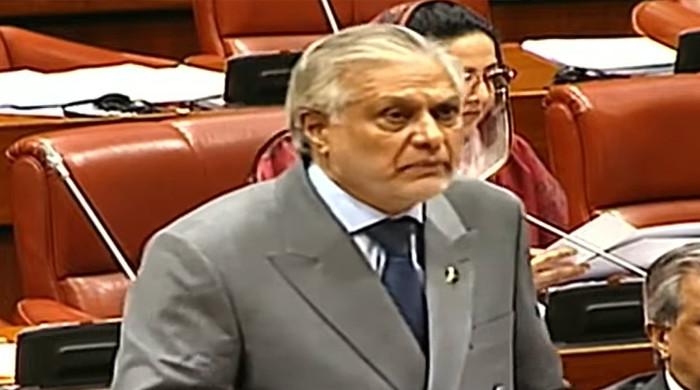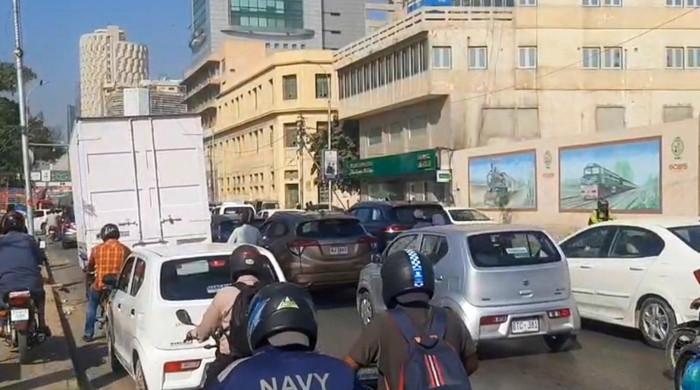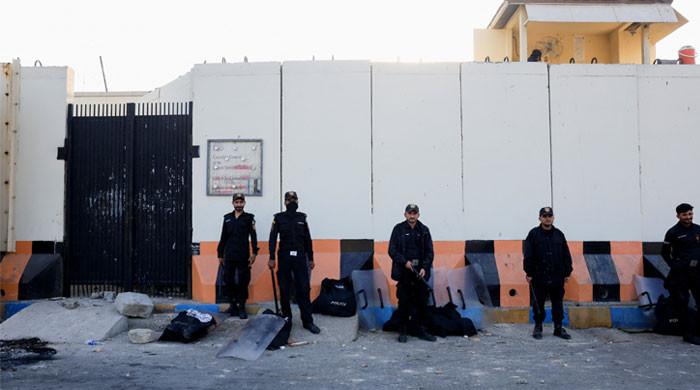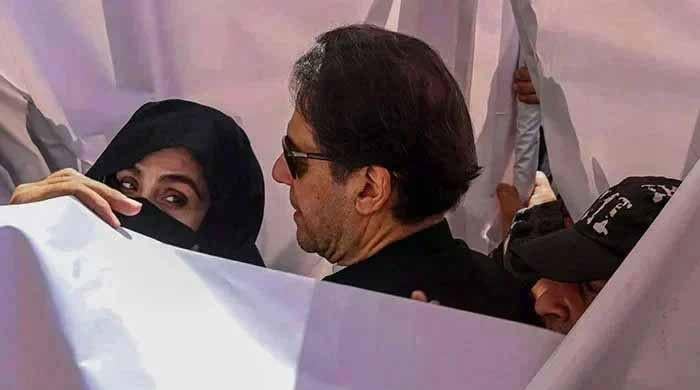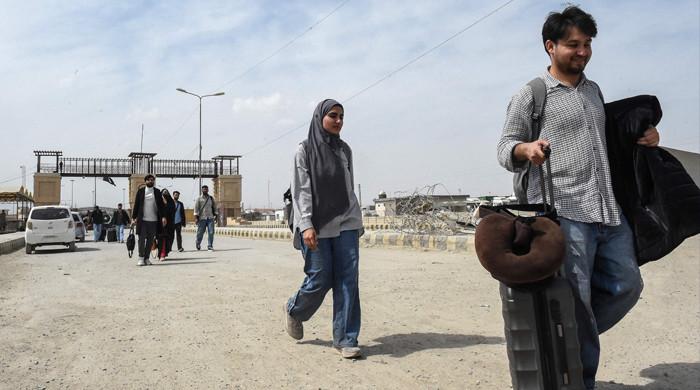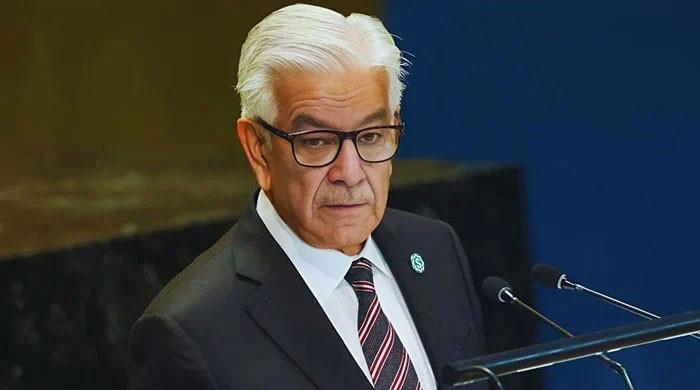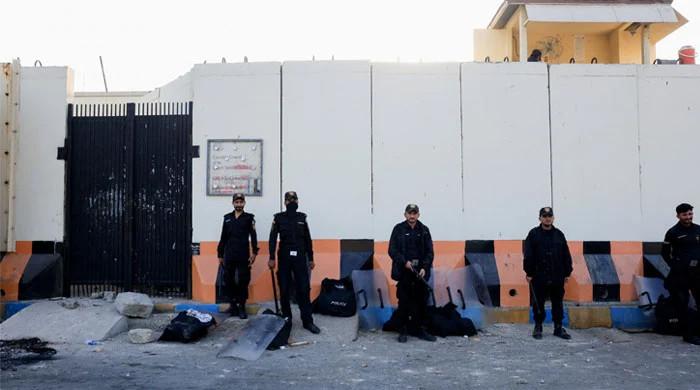Simla Agreement does not rule out a multilateral dialogue: Javed Jabbar
India violated Indus Valley Treat, says Hussain Abdullah Haroon
May 25, 2021
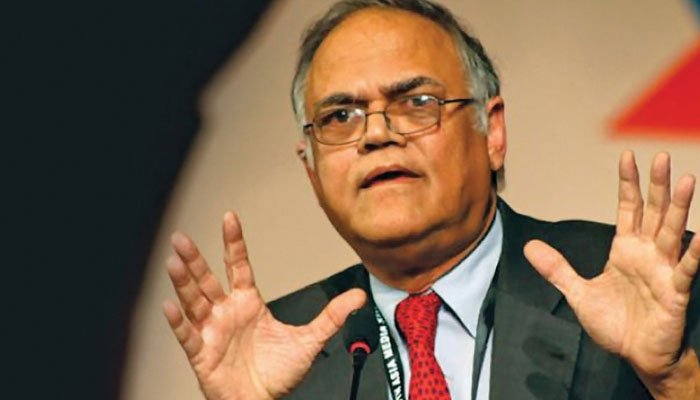
A virtual seminar in memory of renowned progressive leader and politician, Dr Rasheed Hassan Khan was organised by “The Neem Tree”, a Europe-based organisation. The title of the seminar was "Kashmir is mine".
Prominent intellectuals who participated in the seminar openly discussed Pakistan, India and Kashmiris' stance on the occupied Kashmir issue.
Prominent journalist, writer and analyst Zahid Hussain hosted the event. At the outset of the seminar, Waqas Butt, a former student leader and human rights activist, shed light on the life of Dr Rasheed Hassan Khan, his scholarly, political work and struggle for human rights.
Addressing the seminar, former senator, federal minister, filmmaker, author and well-known personality, Javed Jabbar expressed his views, saying that those who refer to the armed attack by Pashtun tribes in Jammu and Kashmir say that it was a planned assault.
It should be recalled that an armed attack was launched in Srinagar in 1948 by Pashtoon Lashkar, a tribal group from Northern Pakistan, which was fighting to free Kashmir. Afterwards, Maharaja Sir Hari Singh of Kashmir called the Indian Army to protect the princely state and signed an accession agreement with India.
Jabbar said this was not true. He quoted a popular Indian newspaper, saying that it had published the news that the Pashtun tribes went there to rescue the unarmed innocent people in response to the massacre of innocent Muslims in occupied Kashmir.
Furthermore, he added that the freedom movement of 1989, an uprising and armed struggle in Kashmir known as an insurgency against Indian rule, had taken the world by surprise, including Pakistan.
He also clarified that there was no mention in the talks between General (retd) Pervez Musharraf and former Indian premier Vajpayee that India and Pakistan would bilaterally divide occupied Kashmir.
Jabbar said he could confirm this because he was also a part of the process then. He said the issue of occupied Kashmir was a global human rights tragedy. "Jammu and Kashmir is not the private property of anyone but this area belongs only to the people of Jammu and Kashmir," he said.
Kashmir issue is not a bilateral one, says Jabbar
Referring to the Simla Agreement, Jabbar said since its inception, a wrong impression has been given that the Kashmir issue is a bilateral one that will be resolved by the parties themselves. Referring to Article One, Clause Two, he said it was clearly stated that the two countries would try to resolve the issue through mutual or any other means, on which they both agreed.
Therefore, the Simla Agreement does not rule out multilateral dialogue anywhere. At the outset of the Simla Agreement, it was decided that it would be governed by the principles and charter of the United Nations. He said that unfortunately, Pakistan could not convince the world that it was India that had violated the agreement and not Pakistan.
Former permanent representative of Pakistan to the United Nations, Hussain Abdullah Haroon said, "I want to make it clear that at the time of partition, the Indian Army had occupied the two independent states of Junagarh and Hyderabad through the army. No occupation was done by any tribe."
Referring to the Indian accusation of the 1948 Tribal attack on Srinagar, Haroon said that the attacking Lashkar had no support from the Pakistan Army.
On the contrary, on the orders of Lord Mountbatten, General Gracie, who was the army chief at that time, stopped the Pakistan Army from cooperating with the tribes supporting the people of Jammu and Kashmir.
He further said that nowhere were the Kashmiris kept away from any dialogue or process concerning Kashmir, but Kashmiri leaders from India were always at the forefront of the struggle.
Responding to other speakers on Gilgit-Baltistan, he said that these areas were not part of Kashmir, but were annexed to the Dogra government under an independent treaty at the behest of Britain. This move, he clarified, was carried out to protect it from attacks by foreign powers, especially Russia and China.
Haroon shed light on the Indian atrocities in the occupied territory, expressing concern over the human rights violations in the occupied territory. He also pointed out India's violation of the Indus Valley Treaty signed between the two parties at the UN. Haroon spoke of the dubious role of the viceroy at the time and other delegates, during the partition of the subcontinent in 1947. Haroon agreed with the other speakers that the dialogue process should continue and tolerance should spread rather than hatred.
The Chairman of the Centre for Peace and Progress, OP Shaw, in his address said that meaningful dialogue between the people of India, Pakistan, occupied Kashmir and the governments of both sides is very important.
"We fought wars but gained nothing. So now peace must have a chance. For that we have to create an atmosphere of trust and confidence," said Shaw.
Well known historian, author, former BBC correspondent and editor of BBC-World Service, Andrew Whitehead, gave a brief but instructive account of the situation in Kashmir before and after 1947 through historical references.
Expressing his views, Justice (retd) Abdul Majeed Malik, who served as the former chief justice of Azad Jammu and Kashmir Supreme Court, said the people of Jammu and Kashmir have been deprived of playing their central role in national and international forums till date.
The people of Jammu and Kashmir have always been disregarded in all agreements, negotiations and consultations, he said, adding that the issue will not be solved without involving the people of Jammu & Kashmir in each and every dialogue.
BJP leader Ashwani Kumar Charango said that the solution to any problem can only come from dialogue.
Chairman Kashmir Liberation Democratic front, Hashim Qureshi said that the issue of Kashmir has been a headache for two billion people of the subcontinent since 1947. "Whenever conflict escalated we Kashmiris die, the loss is ours on both sides," he said. Qureshi said this problem will not be solved unless the "walls of hatred" are brought down.
Yousuf Ibrahim also recited a poem written by a poet based in the United States to express his solidarity with Kashmiris.




